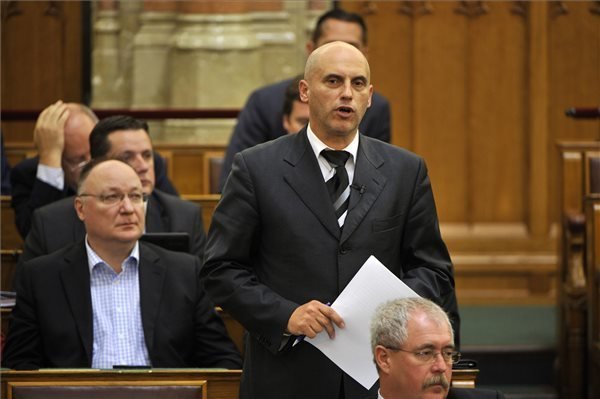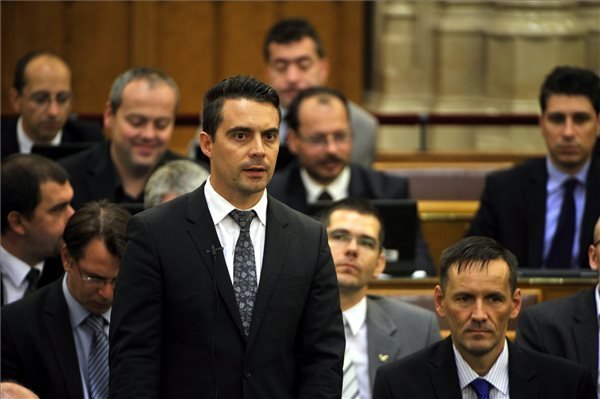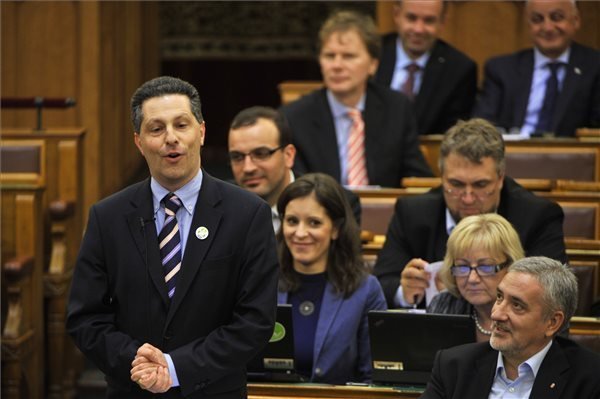Change language:
Orban: Election Win Confirms “Nation-Based” Policies to Follow – Opposition Response

Budapest, October 13 (MTI) – Sunday’s election victory has confirmed that the governing parties must continue to pursue policies which are “nation-based”, and follow ideas of a “people’s party” in the upcoming years, Prime Minister Viktor Orban told Hungary’s parliament on Monday.
Addressing lawmakers after Fidesz’s landslide win in the local election, Orban said “it was time to leave an era of ideologies and ‘isms’ behind”. He said the current situation was fit to further strengthen unity in the country.
If this unity is used well, full employment can be reached, Orban said. He said that while four years ago 3.6 million people were in employment and 1.8 million paid taxes, today these numbers are 4 million each, respectively. Economic growth is above 3 percent and the jobless rate 8 percent, he added. He noted that 57,000 Roma families took jobs for the first time.
He said Sunday’s vote has confirmed the idea that welfare societies in Europe were crumbling, “as it transpires that welfare cannot be the basis of things, it is at best a consequence of none other than work.”
People have agreed to policies which focus on families and support them and one of the most important goals of the upcoming period is to prevent that people should be trapped in having to choose between work and family, Orban said.
The Fidesz-Christian Democrats alliance will continue to serve the full “three-thirds” of the population and hear out those who did not vote for them.
Orban asked lawmakers to make use of this fortunate period and strengthen unity and togetherness in the country.
Opposition parties criticised Orban for his remarks.
A Hungary where the political majority is not related to the larger part of society cannot be strong or successful, the group leader of the opposition Socialists said. Jozsef Tobias said that in the past four years the government had deprived municipalities of most of their powers, and demanded that the central government should provide local governments with all the means necessary to manage the social crisis. He insisted that every third Hungarian child lives in poverty and 3.4 million people earn less than 65,000 forints (EUR 212.4) per month.
Gabor Vona, the leader of radical nationalist Jobbik, urged changes in the areas of job creation, the municipal system and issues around the Roma community. Contrary to the government’s PR campaign on increasing employment, half a million Hungarians have gone abroad and the municipal system has failed, said Vona. He urged finding a “humane solution to Hungarian-Roma cohabitation”, saying that the issue poses an economic, political and cultural “time bomb”.
Hungary’s future cannot be based on an exposed and dependent country lacking solidarity, the co-leader of the LMP party said. Hungary needs to be independent and able to revive itself, Andras Schiffer said. Schiffer accused Orban of pursuing a far-right economic policy. As a result of that policy jobs have been eliminated in the private sector and the outflow of income has accelerated, he said. Schiffer added that as a result of the government’s strategic partnership pacts with big companies 81 percent of subsidies “have oozed to other countries”.
Laszlo Varju, board member of the Democratic Coalition (DK), said Orban had been talking about “cohesion, unity and cooperation which had never existed”. He accused ruling Fidesz of having conducted an “unfair” vote, using platforms such as the public media that gave them gains over the opposition. Varju criticised Orban for his remarks on improving employment statistics, insisting that figures have not shown any considerable increase over the past four years.
Timea Szabo, co-chair of the Dialogue for Hungary (PM) party, said that Orban’s speech had been the prime minister’s “umpteenth empty address”. She called it “disappointing” that Orban did not even have “as much respect for his voters as to tell them what the cabinet is preparing to do in the next three years”. Referring to the labour-based society Orban advocated, Szabo said that the concept had last been promoted by communist leader Janos Kadar, and demanded that Hungary should follow western examples and build a knowledge-based society instead.
Photo: MTI – Attila Kovacs
Source: http://mtva.hu/hu/hungary-matters










